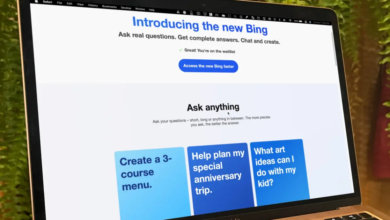Building a Personal Brand Online: Tips for Success

In the digital age, establishing a personal brand online is not just an option; it’s a necessity. Whether you’re an entrepreneur, freelancer, or professional, your online presence can significantly impact your success. This article delves into the strategies and tips for building a powerful personal brand that resonates with your audience and stands out in the crowded online space.
Building a Personal Brand Online
Before embarking on your personal branding journey, it’s crucial to understand what personal branding is. At its core, personal branding is the unique combination of skills, experiences, and personality that you want the world to see. It’s about defining who you are, what you stand for, and how you want to be perceived.
Importance of Personal Branding Online
In a world dominated by digital interactions, your online presence is often the first impression you make. A strong personal brand can open doors to new opportunities, attract clients or employers, and build a loyal following. The online space is a vast marketplace, and a well-crafted personal brand sets you apart from the competition.
Read More Best Practices for Antivirus Software: A Comprehensive guide
Building a Strong Foundation
Crafting Your Unique Value Proposition
Your unique value proposition (UVP) is the essence of your personal brand. It answers the question: Why should people choose you over others? Identify your strengths, skills, and what makes you different. Your UVP should be clear, concise, and resonate with your target audience.
Choosing the Right Platform
Not all platforms are created equal. Depending on your industry and target audience, choose platforms where your presence will have the most impact. Whether it’s LinkedIn for professionals or Instagram for creatives, strategic platform selection is key.
Consistent Visual Identity
Visuals play a crucial role in personal branding. Ensure consistency in your profile pictures, banners, and overall aesthetic. A cohesive visual identity enhances recognition and reinforces your brand.
Content Creation Strategies
Quality Over Quantity
Creating valuable content is more important than churning out a high volume. Quality content establishes you as an authority in your field and fosters trust with your audience.
Leveraging Different Content Types
Diversify your content strategy with a mix of text, images, and videos. Different audiences prefer different formats, so cater to a broad audience by incorporating various content types.
Engaging with Your Audience
Building a personal brand is not a one-way street. Engage with your audience through comments, messages, and discussions. Responding promptly and authentically builds a community around your brand.
Leveraging Social Media
Choosing the Right Platforms
Each social media platform has its own strengths and demographics. Tailor your approach to each platform, ensuring your content aligns with the preferences of your target audience.
Building Relationships
Personal branding is not just about self-promotion; it’s about building meaningful connections. Foster relationships with influencers, collaborators, and your audience to expand your reach.
Utilizing Paid Advertising
Investing in targeted paid advertising can accelerate your brand’s visibility. Platforms like Facebook and Instagram offer robust advertising options to reach specific demographics.
Search Engine Optimization (SEO) for Personal Branding
Keyword Research
Identify keywords relevant to your niche and incorporate them naturally into your content. This boosts your visibility in search engine results and attracts organic traffic.
On-Page Optimization
Optimize your website or profiles for search engines by using relevant meta tags, headers, and a clear URL structure. This ensures that your content is easily discoverable.
Backlink Building
Build a network of quality backlinks to enhance your online authority. Guest posting, collaborations, and participation in industry forums are effective ways to acquire backlinks.
Monitoring and Adapting
Monitoring and Adapting
Monitoring the performance of your personal brand online is crucial for long-term success. Here, we’ll explore the key aspects of monitoring and adapting your strategies to stay relevant and effective.
Analytics and Metrics
Regularly analyze the performance metrics of your online presence. Tools like Google Analytics, social media insights, and website analytics provide valuable data. Keep an eye on:
- Website Traffic: Monitor the number of visitors, page views, and the average time spent on your site. Identify which pages attract the most attention.
- Social Media Engagement: Track likes, comments, shares, and follower growth. Analyze the demographics of your audience to tailor content.
- Conversion Rates: If you have specific goals (e.g., newsletter sign-ups, product sales), monitor conversion rates to assess the effectiveness of your calls-to-action.
Adjusting Strategies
The digital landscape is dynamic, with trends, algorithms, and user behaviors constantly evolving. To stay ahead, be prepared to adapt your strategies:
- Stay Informed: Keep abreast of industry news, algorithm updates on platforms, and emerging trends. Subscribe to relevant newsletters and follow thought leaders.
- User Feedback: Actively seek and listen to feedback from your audience. What content resonates? What do they want more of? Use surveys or polls to gather insights.
- Competitor Analysis: Monitor the strategies of successful personal brands in your niche. What are they doing differently? Can you incorporate similar successful tactics into your approach?
- Experiment and Iterate: Don’t be afraid to experiment with new content formats, posting schedules, or engagement strategies. Analyze the results and adjust accordingly.
By consistently monitoring and adapting your personal branding strategies, you ensure that your brand remains relevant, engaging, and resonates with your target audience. Remember, flexibility is key in the ever-changing online landscape.
Case Studies: Successful Personal Brands
Examine the journeys of individuals who have successfully built their personal brands online. Learn from their strategies, challenges, and triumphs.
Overcoming Challenges
Handling Criticism
Building a personal brand invites scrutiny. Learn to handle criticism gracefully and use it as an opportunity for growth.
Adapting to Changes
The digital landscape evolves rapidly. Stay informed and be adaptable to changes in algorithms, trends, and technology.
Managing Time Effectively
Balancing content creation, engagement, and other aspects of personal branding requires effective time management. Prioritize tasks to maximize efficiency.
Read More: 9 Best Reasons Why You Need Website Hosting
Conclusion
Congratulations! You’ve navigated the intricate terrain of personal branding, and now you’re equipped with the tools to sculpt a powerful online presence. In this digital era, where attention is a valuable currency, your personal brand serves as a beacon, guiding others to recognize your unique value.
As you traverse this journey, remember that building a personal brand is not a one-time endeavor; it’s a continuous evolution. Your brand will grow, adapt, and mature, just as you do. Embrace the process, celebrate the victories, and learn from the challenges.
In a world inundated with information, authenticity is your superpower. Stay true to yourself, and let your personality shine through your online persona. Whether you’re an entrepreneur, artist, or professional, the authenticity woven into your brand is what will resonate most with your audience.
In this conclusion, take a moment to reflect on your journey so far. What have you discovered about yourself? What strengths have you unveiled? What unique perspectives do you bring to the table?
FAQs
How long does it take to see results from personal branding efforts?
Results vary, but consistency is key. Some see noticeable changes in a few months, while others may take longer.
Is it necessary to be active on all social media platforms?
No, choose platforms based on your target audience. Quality engagement on a few platforms is more effective than a scattered presence.
What role does storytelling play in personal branding?
Storytelling adds a human touch to your brand, making it relatable and memorable.
How often should I update my content?
Regular updates keep your audience engaged. Aim for a consistent posting schedule that aligns with your audience’s habits.
Do I need a personal website for personal branding?
While not mandatory, a personal website provides a centralized hub for your brand and showcases your portfolio or achievements.











